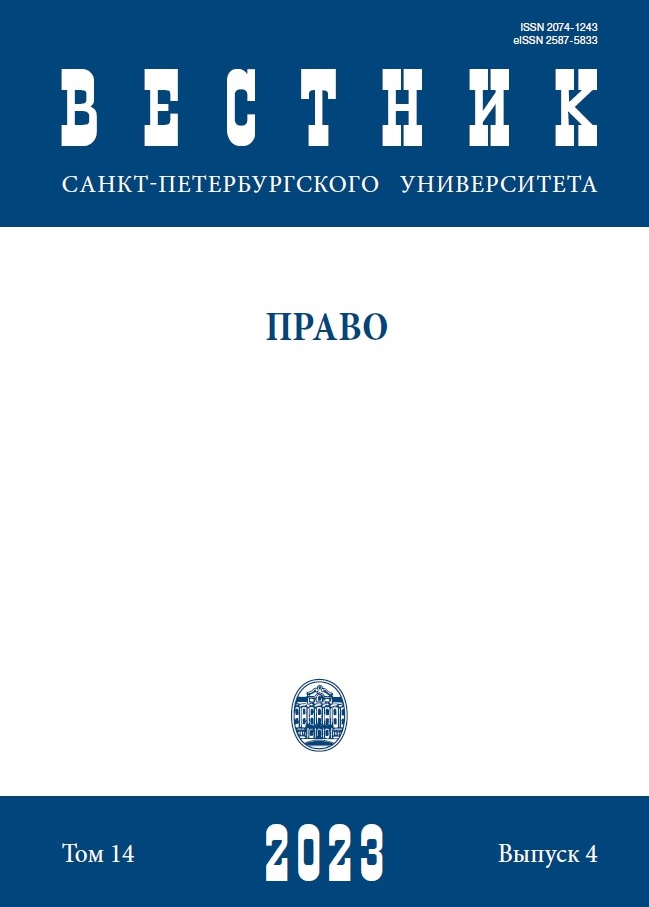Development of legal-tech prospects in the Federal Republic of Iraq: The predictive justice in Anglo-Saxon and Latin perspectives
DOI:
https://doi.org/10.21638/spbu14.2023.413Abstract
The research presents an academic study which examines according to a deep critico-analytical approach, one of the most controversial modernist issues in Western jurisprudence circles, specifically French, and by which we mean the reality of judicial justice in the digital age according to the concept “Predictive Justice”, and the consequent effect of this justice on judicial justice within the legal justice system in legislation. The French system, with the highlighting the Anglo-Saxon experiences, this is according to a research scheme that presents in its first section the opportunities which offering by this concept to the judicial justice system as a whole, especially in light of strengthening the principle of Democracy of Justice; and in its second section, the challenges which this concept poses to this traditional justice system and the fear that it could remould the judicial justice system digitally and regionally, concluding research with a set of results and recommendations, which stimulates the Iraqi criminal legislator with a scientific mechanism to introduce the Predictive Justice to the Iraqi criminal doctrine. The research shows the state of anxiety and anticipation that prevails in this new justice concept in the French legal environment, explains the concept of Glass Justice, Digital Computational Justice, and Capitalist Justice, as well as the fear of stereotyping judicial work with a duplicate digital template, and modelling justice with the Anglo-Saxon’s justice features(source and identity).
Keywords:
predictive justice, algorithmic criminology, democracy of justice, big data, artificial intelligence, machine learning
Downloads
References
Downloads
Published
How to Cite
Issue
Section
License
Articles of "Vestnik of Saint Petersburg University. Law" are open access distributed under the terms of the License Agreement with Saint Petersburg State University, which permits to the authors unrestricted distribution and self-archiving free of charge.






